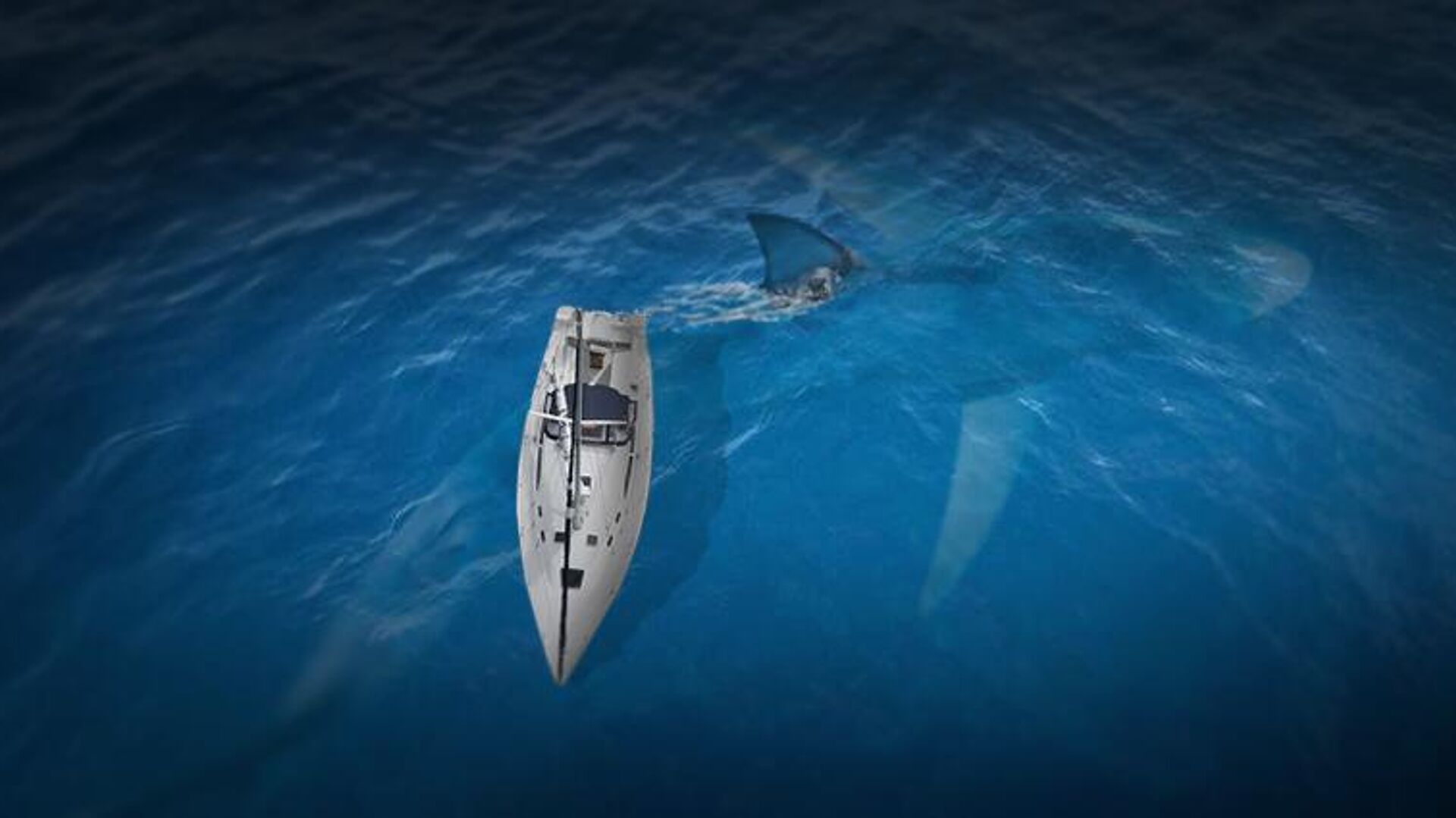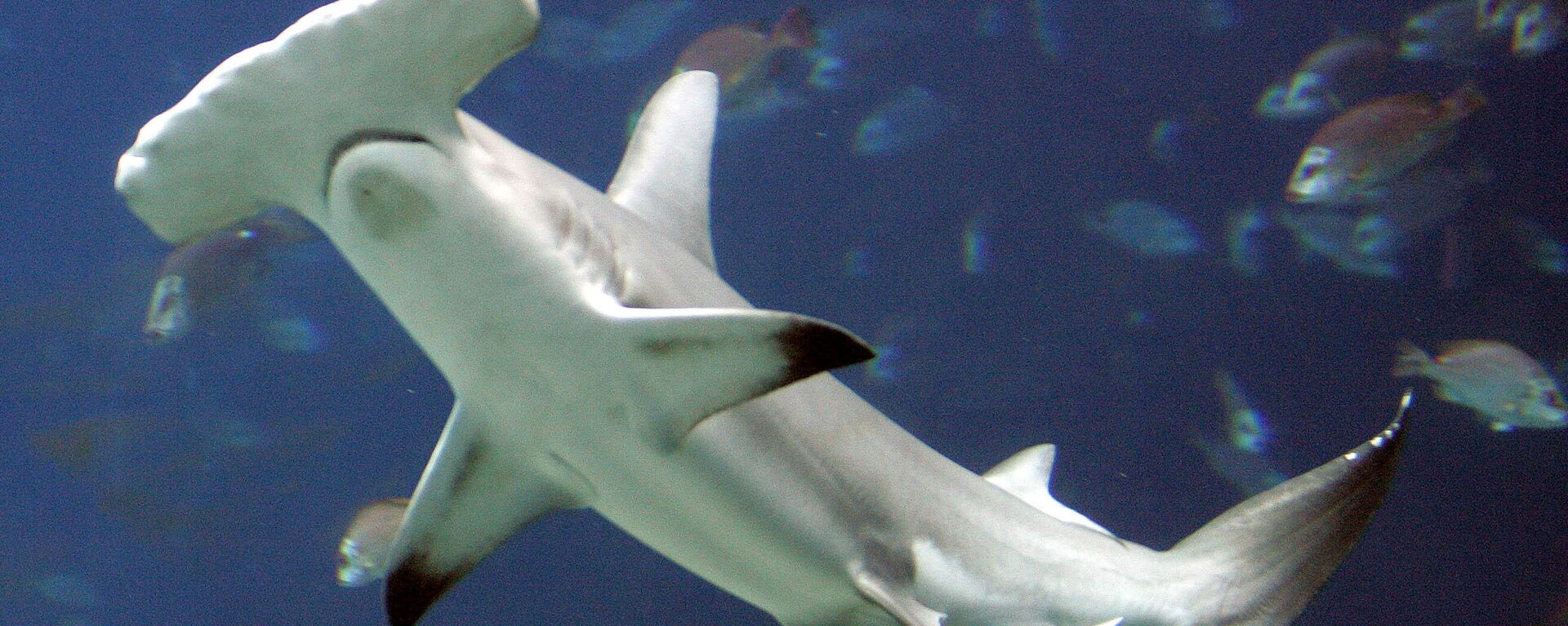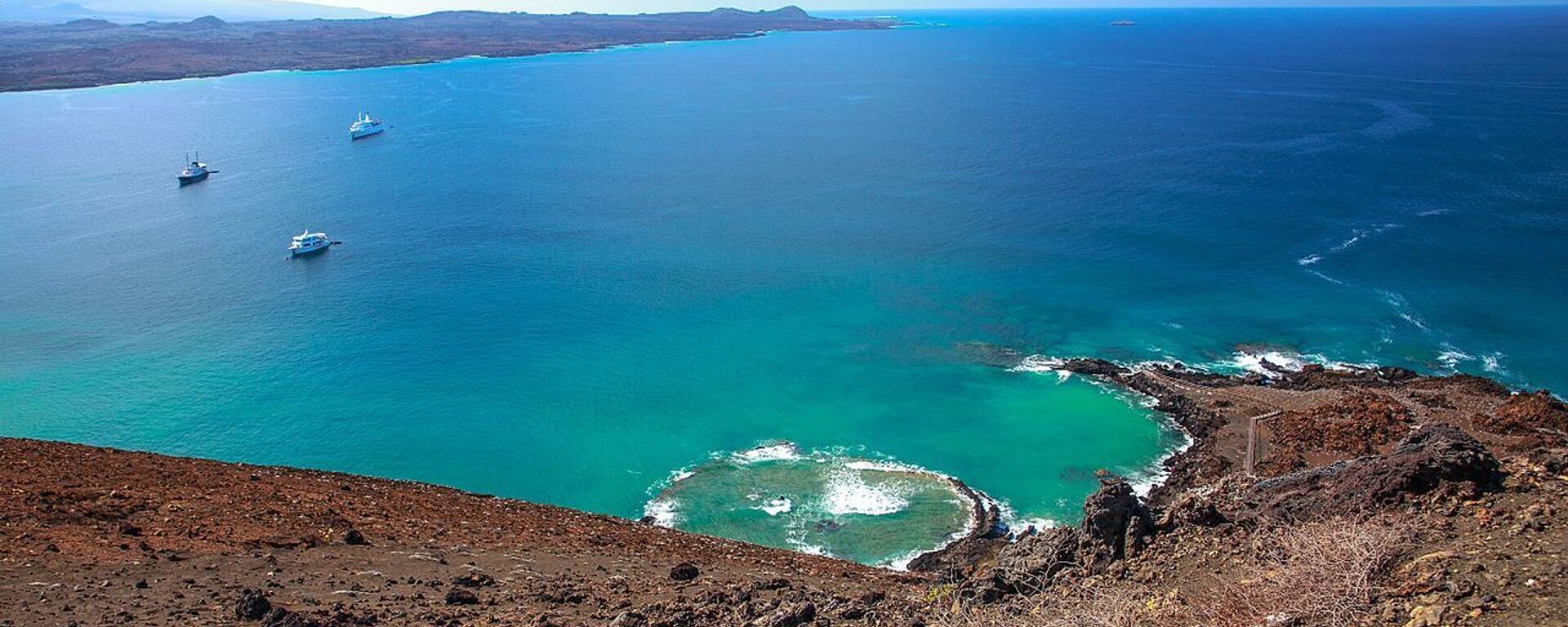https://sputnikglobe.com/20230617/scientists-debunk-claims-of-megalodon-sharks-still-roaming-earths-oceans-1111233343.html
Scientists Debunk Claims of Megalodon Sharks Still Roaming Earth's Oceans
Scientists Debunk Claims of Megalodon Sharks Still Roaming Earth's Oceans
Sputnik International
Despite persistent rumors suggesting the continued existence of megalodon sharks, scientists have definitively refuted the notion that these gigantic predators still roam Earth's oceans today.
2023-06-17T00:06+0000
2023-06-17T00:06+0000
2023-06-17T00:06+0000
beyond politics
science & tech
earth
ocean
ocean
shark
https://cdn1.img.sputnikglobe.com/img/07e7/06/10/1111233182_22:0:778:425_1920x0_80_0_0_8b94b3d05a1ab8facc169fa79ba8ad72.jpg
The megalodon, an enormous species of shark that dominated the seas from 20 million to 3.6 million years ago, is extinct and has left no credible evidence to support its survival into modern times - not even in unexplored regions of the ocean, experts have firmly asserted. Jack Cooper, a doctoral student at Swansea University and member of the Pimiento Research Group studying marine diversity, has categorically dismissed the notion of megalodon's existence today. He has explained there is no shred of credible evidence to support the claim and referred to it as "complete nonsense."The extinction of the megalodon led to cascading consequences, influencing the evolution of marine mammals, including whales, which grew larger in the absence of the apex predator.While some of Earth's oceans remain unexplored, including the mysterious and deep Mariana Trench, scientists argue that such inhospitable environments are unlikely habitats for a large apex predator like the megalodon.Moreover, the Mariana Trench primarily hosts microscopic life, incapable of sustaining even a single megalodon, let alone a hidden population.Kenshu Shimada, a paleobiologist at DePaul University, concurred with Cooper's assertions, emphasizing that claims of living megalodons have never been substantiated.To comprehend why the megalodon could not survive in today's oceans, it is essential to consider the factors that led to its extinction. Shimada noted that possible causes include climate change and competition with the great white shark, which emerged a few million years ago.Scientists explained that the reduction in sea levels during the Pliocene epoch (5.3 to 2.6 million years ago) significantly impacted the coastal habitats of both the megalodon and its prey.Considering that today's sea levels generally remain much lower than during the Pliocene, conditions are far from ideal for the megalodon's survival.Finally, the threat of poaching further undermines the possibility of megalodon's existence. Cooper highlighted that if megalodons were alive today, they would likely face significant risk from human activities, similar to the endangerment of great white sharks.With humans responsible for killing approximately 100 million sharks annually, larger sharks are particularly vulnerable. Consequently, the absence of clear evidence substantiating the existence of megalodons further supports the scientific consensus that these ancient giants are extinct and have not survived into the present era.
https://sputnikglobe.com/20230512/how-deep-diving-hammerhead-sharks-survive-depths-of-2500-feet-1110274704.html
https://sputnikglobe.com/20230418/scientists-discover-coral-reef-in-unmapped-galapagos-islands-territory-1109609656.html
earth
Sputnik International
feedback@sputniknews.com
+74956456601
MIA „Rosiya Segodnya“
2023
News
en_EN
Sputnik International
feedback@sputniknews.com
+74956456601
MIA „Rosiya Segodnya“
Sputnik International
feedback@sputniknews.com
+74956456601
MIA „Rosiya Segodnya“
megalodon, shark, greatest shark ever, biggest shark species, what shark species did extinct, ocean studies, deep ocean fauna
megalodon, shark, greatest shark ever, biggest shark species, what shark species did extinct, ocean studies, deep ocean fauna
Scientists Debunk Claims of Megalodon Sharks Still Roaming Earth's Oceans
Despite persistent rumors suggesting the existence of megalodon sharks, scientists have definitively refuted the notion that these gigantic predators still roam Earth's oceans today.
The megalodon, an enormous species of shark that dominated the seas from 20 million to 3.6 million years ago, is extinct and has left no credible evidence to support its survival into modern times - not even in unexplored regions of the ocean, experts have firmly asserted.
Jack Cooper, a doctoral student at Swansea University and member of the Pimiento Research Group studying marine diversity, has categorically dismissed the notion of megalodon's existence today. He has explained there is no shred of credible evidence to support the claim and referred to it as "complete nonsense."
"Megalodon was not only a very big coastal shark that would definitely have been seen by now, it was also an apex predator higher on the food web than any living marine predator. As such, it would've been a huge influence on ocean ecosystems," explained Cooper.
The extinction of the megalodon led to cascading consequences, influencing the evolution of marine mammals, including whales, which grew larger in the absence of the apex predator.
While some of Earth's oceans remain unexplored, including the mysterious and deep Mariana Trench, scientists argue that such inhospitable environments are unlikely habitats for a large apex predator like the megalodon.
"The deep sea would be totally unsuitable habitats for such a big apex predator," he said. "We find deep sea sharks all the time and none come anywhere close in size to a 20-meter [65-foot] giant. As megalodon was likely consuming fairly large prey, those smaller animals wouldn't be great sources anyway," the scientist said.
Moreover, the Mariana Trench primarily hosts microscopic life, incapable of sustaining even a single megalodon, let alone a hidden population.
Kenshu Shimada, a paleobiologist at DePaul University, concurred with Cooper's assertions, emphasizing that claims of living megalodons have never been substantiated.
To comprehend why the megalodon could not survive in today's oceans, it is essential to consider the factors that led to its extinction. Shimada noted that possible causes include climate change and competition with the great white shark, which emerged a few million years ago.
Scientists explained that the reduction in sea levels during the Pliocene epoch (5.3 to 2.6 million years ago) significantly impacted the coastal habitats of both the megalodon and its prey.
"That reduction would have dramatically affected the coastal habitats of both the megalodon and their prey," said Cooper. "It meant less area for them to live in and less food availability to replenish the huge amount of energy they needed to justify their enormous sizes and active predatory lifestyles."
Considering that today's sea levels generally remain much lower than during the Pliocene, conditions are far from ideal for the megalodon's survival.
Finally, the threat of poaching further undermines the possibility of megalodon's existence. Cooper highlighted that if megalodons were alive today, they would likely face significant risk from human activities, similar to the endangerment of great white sharks.
With humans responsible for killing approximately
100 million sharks annually, larger sharks are particularly vulnerable. Consequently, the absence of clear evidence substantiating the existence of megalodons further supports the scientific consensus that these ancient giants are extinct and have not survived into the present era.






